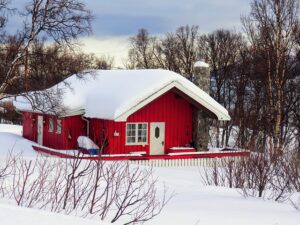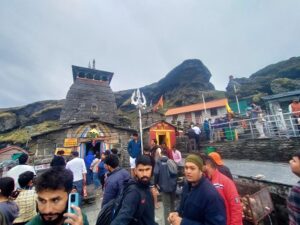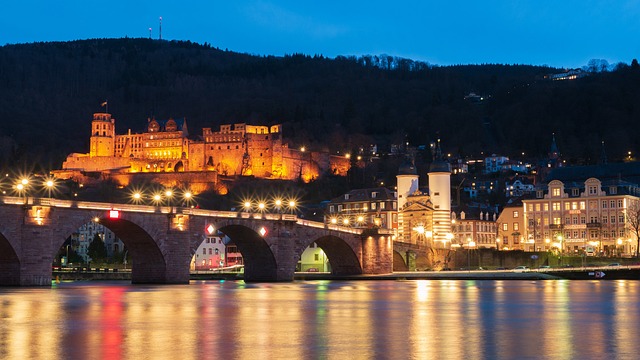Christmas time in Germany is nothing short of magical. Known for its centuries-old traditions, festive markets, and cozy holiday atmosphere, the country transforms into a winter wonderland during the holiday season. If you’re looking for the ultimate Christmas experience, Germany is definitely the place to be.
Christmas in Germany
One of the highlights of Christmas in Germany is the Christmas markets. These traditional Weihnachtsmärkte (Christmas markets) are scattered throughout cities and towns. Some of the most famous ones are:
Vibrant Markets to explore during Christmas in Germany
Nuremberg:
The Nuremberg Christkindlesmarkt is one of Germany’s most iconic Christmas markets, set in the heart of the city’s medieval Old Town. With its twinkling lights, festive stalls, and the scent of mulled wine and roasted chestnuts in the air, it’s a true holiday wonderland. It is one of the oldest and most famous, offering a mix of history and festive cheer.
Visitors can shop for handcrafted ornaments, traditional toys, and delicious treats like Lebkuchen (gingerbread). The market’s historic charm, combined with its warm, welcoming atmosphere, makes it a must-visit for anyone looking to experience authentic Christmas magic.
Munich:
The medieval Viktualienmarkt turns into a Christmas spectacle with stalls selling everything from local delicacies like Bratwurst and Lebkuchen to handcrafted toys, gifts and decorations. Located in the historic Marienplatz, is a festive highlight in the Bavarian capital.
With the majestic New Town Hall as its backdrop, the market offers a magical atmosphere filled with twinkling lights, traditional wooden stalls, and the aroma of spiced mulled wine and roasted almonds.
Cologne:
Set against the stunning backdrop of the Cologne Cathedral, a UNESCO World Heritage site, the Cologne Christmas Market is a festive spectacle. With its towering spires and twinkling lights, the market exudes holiday magic.
Visitors can explore over 150 charming stalls offering handcrafted gifts, seasonal treats like Reibekuchen (potato pancakes), and mulled wine. The atmosphere is lively, with carolers, live performances, and the scent of roasted chestnuts filling the air, making it a must-see for Christmas lovers.
Dresden:
One of the oldest Christmas markets in Germany, the Striezelmarkt in Dresden is famous for its Stollen (traditional German Christmas cake). The market’s historic setting, with its ornate buildings and festive lights, creates a magical atmosphere. Visitors can enjoy handmade crafts, local delicacies, and live music performances.
Kiel:
The Kiel Christmas Market, features over 80 festive stalls offering handmade crafts, delicious seasonal treats, and warm beverages like mulled wine (Glühwein). Visitors can enjoy a cozy atmosphere, with twinkling lights, live music, and ice skating at the nearby rink.
Heidelberg:
Set in the picturesque town of Heidelberg, the Christmas market is spread across several squares, with a stunning view of Heidelberg Castle in the background. Stalls offer local crafts, delicious German specialties, and warm beverages like Glühwein. The romantic, historic atmosphere, especially in the evenings, is perfect for a cozy Christmas experience.
Aachen:
Near the border with Belgium and the Netherlands, the Aachen Christmas Market is famous for its local treats like Printen (Aachen gingerbread) and Aachener Reibekuchen. Set around the breathtaking Aachen Cathedral, the market offers a mix of history, charm, and delicious seasonal delights.
Frankfurt:
Frankfurt’s Christmas Market, located in the city’s historic Römerberg square, is one of the largest and most popular in Germany. With over 200 stalls, it’s a shopper’s paradise, offering everything from handcrafted gifts to local specialties. Don’t miss out on trying a Bethmännchen (marzipan cookies), a local treat.
Bamberg:
The Bamberg Christmas Market takes place in the charming UNESCO-listed town, known for its medieval architecture and picturesque streets. The market has a warm, cozy vibe with a mix of regional foods, crafts, and holiday decorations. The atmosphere here feels intimate and traditional, making it a delightful experience.
Lübeck:
Lübeck, known for its medieval architecture, is home to one of Germany’s most picturesque Christmas markets. The market stretches across several squares and is renowned for its unique gift selection and seasonal treats. Lübecker Marzipan (marzipan sweets) is a must-try while visiting.
Just imagine, rows of wooden stalls, twinkling fairy lights, the scent of roasting chestnuts, and hot mugs of Glühwein (mulled wine). The markets are a paradise for anyone who loves Christmas shopping, with countless hand-crafted ornaments, beautiful wreaths, and delicious treats like Lebkuchen (gingerbread) and Bratwurst.
These Christmas markets across Germany offer a mix of tradition, charm, and holiday cheer, making each visit a truly magical experience. Whether you’re in the city or the countryside, there’s no better way to experience the heartwarming spirit of Christmas in Germany!
Advent Wreath (Adventskranz): Traditions to look for during Christmas in Germany
Another thing that sets Christmas in Germany apart is the way the holiday is celebrated at home. “Adventskranz” is a cherished Christmas tradition. It typically consists of a circular wreath made of evergreen branches, symbolizing eternal life. Four candles are placed on it, one for each Sunday of Advent, with a candle lit each week.
The wreath is often adorned with ribbons, dried fruits, and other decorations. Families gather around the wreath, reflecting on the upcoming Christmas celebration, making it a centerpiece of Advent rituals and holiday preparations.
On Christmas Eve, Germans celebrate with a festive meal and exchange gifts, and many cities have beautiful Christmas Eve services at local churches, filled with carols and candlelight.
Exploring the Best Christmas Destinations in Germany
Rothenburg ob der Tauber is widely regarded as one of the best Christmas destinations in Germany, offering a magical holiday experience straight out of a fairy tale. Its medieval charm is enhanced during the Christmas season, when the town is adorned with festive lights, wreaths, and decorations.
The Rothenburg Reiterlesmarkt, a traditional Christmas market, fills the town square with the aroma of mulled wine, roasted chestnuts, and gingerbread. Visitors can browse unique handmade ornaments, crafts, and local delicacies, all set against the backdrop of medieval buildings, half timbered houses draped in snow and festive decorations and cobblestone streets.
The town’s Käthe Wohlfahrt Christmas Village is a year-round Christmas shop that becomes especially enchanting during the holiday season. The town even has its own Christmas Museum, where you can learn about the history of German Christmas traditions.
The Night Watchman Tour adds an extra layer of history and festivity, making Rothenburg a top choice for anyone seeking a quintessential German Christmas experience. Its timeless beauty, rich traditions, and cozy atmosphere make it the perfect place to celebrate the holidays.
Christmas Spirit
Germany’s Christmas spirit wasn’t just about the markets; it was in the homes and streets. Even the quiet little villages, with their cobblestone streets and medieval architecture, looked like something out of a Christmas card.
Christmas in Germany is about togetherness, tradition, and celebrating the season in a way that connects the past with the present. Whether it was sharing a meal of Wiener Schnitzel with friends or simply watching the snow fall gently over the town square, Germany’s Christmas magic will stay with you long after you leave.
Conclusion
If you’ve ever wanted to experience Christmas in its most magical form, then Germany is where you need to be.
Christmas in Germany is more than just the decorations and presents—it’s a time to slow down, enjoy the simple pleasures of the season, and embrace the warmth of tradition.
Whether you’re strolling through a Christmas market, sipping on mulled wine, or just soaking in the festive spirit, there’s something undeniably magical about spending Christmas in Germany.
This Christmas, if you have the chance, I highly recommend taking a journey to Germany. It’s a place where the holiday spirit truly comes alive—one festive market, one glowing light, and one joyful moment at a time.
FAQ’S =》
Q1. When does Christmas season start in Germany?
Ans. The Christmas season typically begins with Advent, which starts on the fourth Sunday before Christmas (usually late November or early December).
Q2. What is a traditional German Christmas market like?
Ans. German Christmas markets (Weihnachtsmärkte) are festive outdoor events with stalls selling holiday decorations, crafts, gifts, mulled wine (Glühwein), roasted chestnuts, gingerbread cookies (Lebkuchen), and other seasonal treats. They are usually held in town squares and run throughout Advent.
Q3. What is the significance of the Advent calendar in Germany?
Ans. The Advent calendar (Adventskalender) is a beloved tradition where children open one small door each day, revealing a treat or a picture, to count down the days until Christmas. It starts on December 1st and ends on Christmas Eve.
Q4. What is Christmas Eve like in Germany?
Ans. Christmas Eve (Heiligabend) is the most important day of the Christmas celebrations. Families gather for a festive dinner, exchange gifts, and attend a church service. Many homes display Christmas trees (Weihnachtsbaum), which are traditionally decorated on Christmas Eve.
Q5. How do Germans celebrate Christmas Day?
Ans. Christmas Day (Weihnachtstag), celebrated on December 25th, is a more peaceful and religious occasion. Families typically attend church services and enjoy a festive meal together, often featuring dishes like roast goose or carp.
Q6. What are some popular German Christmas foods?
Ans. Popular German Christmas foods include roasted meats, sausages, potato salad, marzipan sweets, and stollen (a fruit bread). Warm beverages like Glühwein and hot chocolate are commonly served at Christmas markets.
Q7. Where are the best Christmas markets in Germany?
Ans. Some of the most famous Christmas markets in Germany include those in Nuremberg, Munich, Rothenburg ob der Tauber, Cologne etc. Each market has its own unique character and charm, making them popular destinations for holiday visitors.
Q8. What is “Adventskranz”?
Ans. The Advent wreath (Adventskranz) is a circular wreath made from evergreen branches, typically adorned with four candles—one for each Sunday in Advent. Each Sunday, a new candle is lit, leading up to Christmas. It symbolizes the passage of time during the Advent season and prepares families for the Christmas celebration.
Q9. What is “Glühwein”?
Ans. Glühwein is a traditional German mulled wine served during the Christmas season, especially at Christmas markets. It’s made by heating red wine with spices like cloves, cinnamon, and orange peel, often sweetened with sugar and sometimes served with a slice of orange.
Q10. Why do Germans celebrate Christmas on December 24th?
Ans. In Germany, Christmas Eve (Heiligabend) is the most important day of the holiday season. It’s when families gather to exchange gifts, enjoy a festive meal, and attend church services. December 25th is a more religious and reflective day, focusing on the birth of Christ.
Q11. What is a “Weihnachtsbaum” and how is it decorated?
Ans. A “Weihnachtsbaum” is the German Christmas tree, typically decorated with candles (or lights), ornaments, tinsel, and sometimes edible treats like gingerbread or chocolate. The tree is usually put up on Christmas Eve and remains the centerpiece for family celebrations.
Q12. What are “Lebkuchen” in German Christmas traditions?
Ans. Lebkuchen are gingerbread cookies that are a staple of the German Christmas season. These spiced treats come in various shapes, often decorated with icing or coated in chocolate, and are sold at Christmas markets across Germany.



